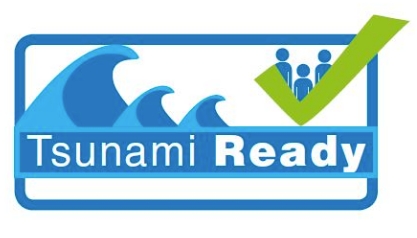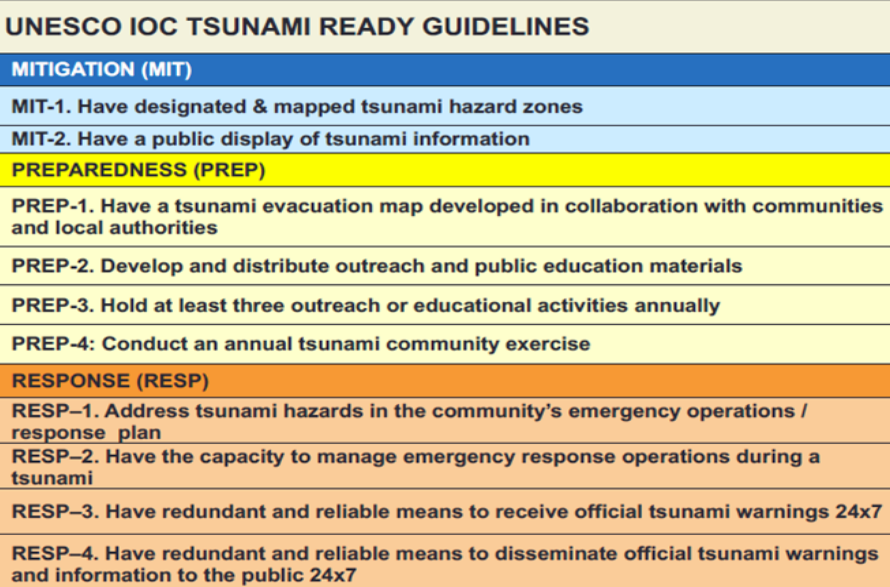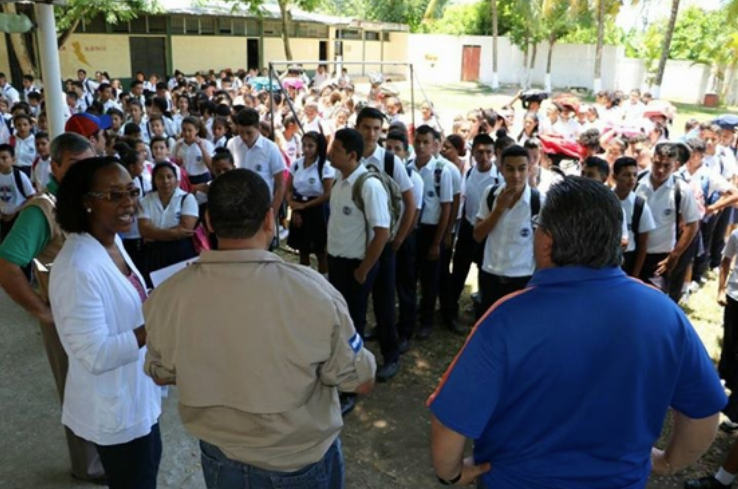 Administered by CTIC (on behalf of UNESCO/IOC) in the Caribbean and adjacent regions Tsunami Ready is an international performance-based community recognition programme. It was adapted from the US NOAA TsunamiReady® Program and piloted through the ICG/CARIBE EWS. Since 2011 with the support its CTIC, Member States, regional partners and donors, UNESCO/IOC has recognized 14 Tsunami Ready communities within the Caribbean and Adjacent regions. The programme is now being implemented globally across the other 3 regional basins coordinated by UNESCO/IOC.
Administered by CTIC (on behalf of UNESCO/IOC) in the Caribbean and adjacent regions Tsunami Ready is an international performance-based community recognition programme. It was adapted from the US NOAA TsunamiReady® Program and piloted through the ICG/CARIBE EWS. Since 2011 with the support its CTIC, Member States, regional partners and donors, UNESCO/IOC has recognized 14 Tsunami Ready communities within the Caribbean and Adjacent regions. The programme is now being implemented globally across the other 3 regional basins coordinated by UNESCO/IOC.
Tsunami Ready is an international performance-based community recognition pilot programme being rolled out under the auspices of the Intergovernmental Oceanographic Commission of UNESCO (UNESCO/IOC). Based on a comprehensive set of guidelines, this sustainable programme seeks to ensure that recognised communities possess the necessary tools, operational procedures, knowledge and skills to effectively take the necessary response actions in the event of a tsunami threat to save lives and property.
The Tsunami Ready programme seeks to protect lives, livelihoods and properties and build resilience to tsunamis through mitigation, preparedness and response strategies. This is achieved through a collaborative effort to meet a standard level of tsunami preparedness through the fulfilment of a set of established indicators.

Source: International Tsunami Information Center Caribbean Office (ITIC-CAR) A UNESCO/IOC-NOAA Partnership
The Tsunami Ready program is implemented as a voluntary, performance-based community recognition program that promotes an understanding of the concept of readiness as an active collaboration among national and local warning and emergency management agencies and government authorities, scientists, community leaders, and the public.

Source: CTIC, 2017
At the national and local community scales, the programme needs to be supported by national and local policies, procedures, and mechanisms. Capacity building is paramount. After becoming Tsunami Ready, communities are required to apply for renewal every 3 - 4 years, building resilience through national and community level programming. In every case of renewal, communities have demonstrated significant strides in advancing their capacity. In addition to securing the programme’s resilience, this approach is crucial for supporting MS who implement Tsunami Ready progressively community by community, towards Tsunami Ready recognition at the country level.
Through the Tsunami Ready programme, communities such as St. Patrick, Carriacou and Petite Martinique (Grenada), Fort Liberte (Haiti), Corn Island (Nicaragua), Union Island (St. Vincent and the Grenadines) and Carenage (Trinidad and Tobago) among others have integrated the education and tourism sectors, youth, elderly, disabled, private sector and community based organisations to achieve great success. It is important for us to understand that being Tsunami Ready does not mean that tsunamis will not happen. What it means is that national and local authorities, responders, civil society, private sector, youth, women, elderly and children will be prepared to respond appropriately should a tsunami threaten. Tsunami Ready supports the end-to-end warning system approach, which leaves no one behind.
Through the mechanism of the Working Group on Tsunamis and Other Hazards Related to Sea-Level Warning and Mitigation Systems (TOWS-WG) the UNESCO/IOC Programme is under consideration globally at various levels throughout UNESCO/IOC’s four (4) Intergovernmental Coordination Groups - the Caribbean and Adjacent Regions, Indian Ocean, North Eastern Atlantic Mediterranean and Connected Seas, and the Pacific. A key goal of the United Nations Ocean Decade of Science for Sustainable Development led by UNESCO/IOC is to make 100% of communities at risk of tsunamis prepared for and resilient to tsunamis by 2030 through the implementation of the Tsunami Ready Programme and other initiatives. In the Caribbean, we want to contribute greatly to the achievement of this goal and there is space for more Member States, donors and partners to Be Part of the Wave!




